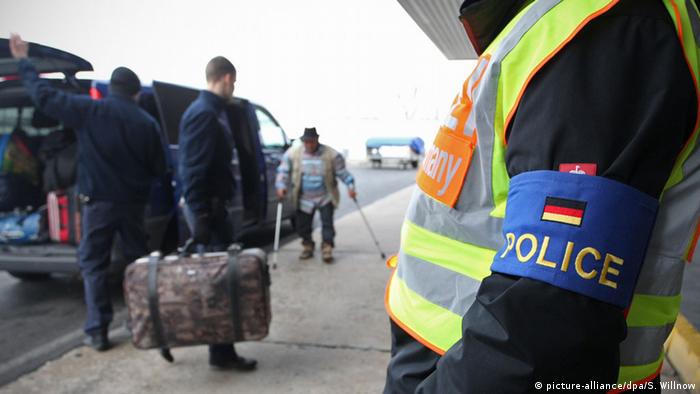Refugees
Ansbach: Rejected but not deported
The perpetrators of Ansbach, was a refugee from Syria, whose asylum application has been refused. He was tolerated in Germany. What exactly does that mean?

The case of the
Perpetrator of Ansbach raises many questions – including his residence status in Germany. The killer was a Syrian refugee, whose application for asylum was denied. For Syrians who come to Germany is rather atypical. Because most of the Syrian refugees in Germany with a high probability of asylum.
The perpetrators of Ansbach was tolerated after his unsuccessful asylum application in Germany. According to a spokesman of the Federal Ministry of the interior, he should be deported to Bulgaria. Why the deportation was not completed, could not tell the speaker, however, since the länder for the deportation charge.
As a General rule, anyone Who comes to Germany and can prove that he is threatened by war, has a good chance in the Federal Republic of Germany. If you must, but stay really depends, nevertheless, the outcome of the asylum procedure.
In the case of Syrians, the so-called protection rate is nearly 100 percent. The Federal office for Migration and refugees (BAMF) uses the concept of a protection ratio for the proportion of people from a certain country, get either the right to asylum, persons recognized as refugees or for other reasons at least to be tolerated.
What are the applications for asylum are rejected?
Persons from a so-called “safe country of origin” have no good prospects for the residence permit in Germany. For this purpose, all the countries of the Western Balkan, for example Serbia, Macedonia and Albania. Syria is not considered as a safe country of origin. The BAMF decides according to its own information, but always in relation to the individual fate of each asylum seeker.
Moreover, it may happen that refugees will be returned to the EU country they first enter. This is governed by the so-called “Dublin procedure”.
What happens if a request was rejected?
Rejected asylum seekers who get no protection status in Germany, have to leave the country typically within 30 days. You will be informed by the authorities. There are then two possibilities: Either the rejected asylum seekers leave the country within the period specified or he fights against the decision, and asserts a claim against the rejection. He should not leave the country, so he is forced to.

The police searched the property of the alleged assassin of Ansbach
When is a deportation ban?
If an asylum application has been refused, there are various reasons that refugees not be deported anyway. If a refugee has no passport or he can not travel due to health reasons, he will not be deported.
A deportation ban applies even if the Federal office finds that the applicant is in the country of origin is a “substantial and definite danger for body, life or freedom” threatens. This is not the case, if the situation in the country of origin allow a return. In relation to Syria, the war is considered as a reason for deportation should be suspended.
What is the meaning of a “Duldung”?
A tolerance is in accordance with the residence act, a “temporary suspension of deportation”. The Duldung is not a residence title, but only means that a Person is tolerated, therefore, not illegal in Germany is. It can therefore be theoretically be deported at any time. The tolerance must be applied every six to 18 months. For tolerated persons limitations, for example, apply to the access to the labour market and social services. In addition, they are subject to the residency obligation, you may remain only in a state.
How many people live in Germany with a Duldung?
According to the Federal Statistical office, lived to 31. December 2015 in Germany 155.103 foreigners with a toleration.